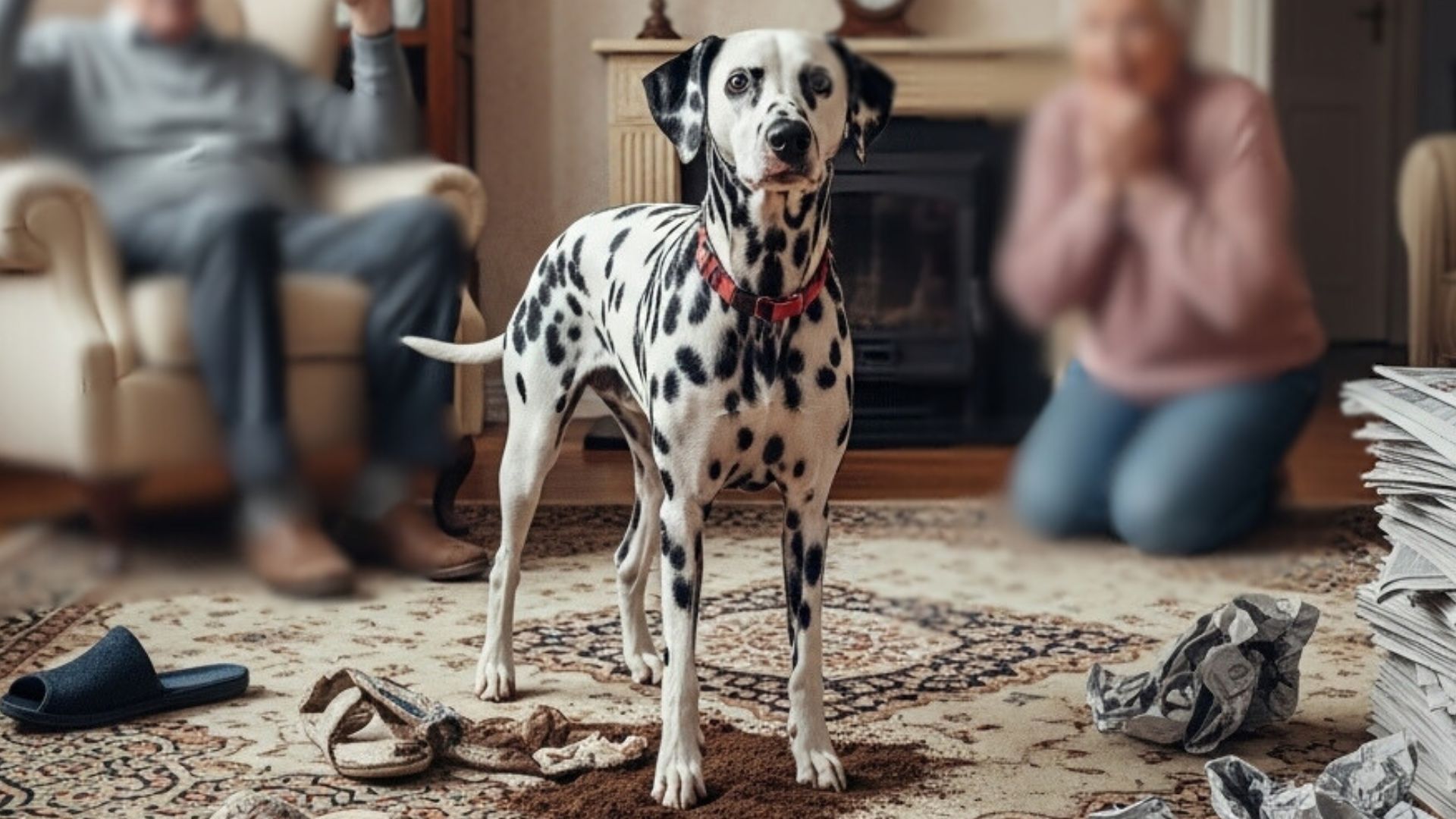Choosing the right dog is a joyful yet thoughtful decision, especially for senior citizens. A furry companion can bring comfort, companionship, and a sense of purpose, but not every dog fits the lifestyle of an older adult.
Some high-energy or large dogs may unintentionally overwhelm senior dog owners, while calmer, low-maintenance pets can provide support without stress.
Understanding a dog’s temperament, exercise needs, and grooming requirements is essential for safe and happy pet ownership.
Intelligent, active dogs often require daily physical and mental stimulation, along with proper training, which may be challenging for seniors to maintain consistently.
Meanwhile, smaller or more relaxed dogs can offer companionship while being easier to manage in a senior living environment.
By considering energy levels, obedience, and a friendly, affectionate nature, seniors can select a loyal family companion who enriches daily life.
The right dog ensures safety, emotional support, and a loving presence for both the pet and its owner.
Best Dog Breeds To Avoid With Elderly Parents
1. Rottweiler
The Rottweiler is a high-energy dog, full of strength and loyalty. Within the family, they can be a gentle playmate, a highly active companion, and a playful cuddle partner, often forgetting their own size in moments of affection.
Yet, this very power and athleticism that make it admirable can become overwhelming for elderly parents.
A sudden leap or tug during excitement may lead to accidental falls, and managing physical and mental stimulation can be physically demanding.
Considerations for Seniors
Rottweilers need early training, proper socialization, and consistent guidance to channel their territorial instincts positively. They require daily exercise in the form of daily walks, play, swimming, and structured activities that challenge both mind and body, as per the AKC.
Without an active lifestyle, even a well-mannered Rottweiler may become aggressive or inadvertently intimidating, leading to destructive behavior.
For seniors, this breed’s muscular build can be challenging. Their high energy levels demand constant activity. They love to play and stay busy. These traits can exceed what older adults can safely manage.
Despite their friendly and affectionate nature, they are not ideal for seniors seeking a calm, low-maintenance dog.
2. Akita
The Akita is a strong, loyal, and dignified dog. Within the family, they can be affectionate and playful, often showing surprising silliness despite their imposing size. Yet for elderly parents, their strength and physical exercise demands can be challenging to manage.
Daily walks, jogs, and playtime demand stamina, and even routine interaction may feel physically taxing. Their protective instincts, while admirable, can make encounters with strangers or other pets stressful.
Seniors may find it difficult to meet the exercise and care requirements this breed naturally demands, therefore making Akitas one of the worst dog breeds for seniors.
Considerations for Seniors
Akitas are self-groomers, but their thick double coats need weekly brushing. Shedding increases twice a year, requiring extra attention.
As per Purina, they are prone to weight gain and, like many large dog breeds, have a higher risk of bloat. Without proper exercise, training, and early socialization, the high energy levels of this powerful breed can unintentionally create safety risks.
For seniors looking for a relaxed, easygoing furry friend, the Akita can be too challenging.
3. Weimaraner
Weimaraners are beautiful, loyal, and highly intelligent dogs. They thrive on activity and love to stay close to their family at all times. This energetic breed can keep moving for hours, whether on long walks, play sessions, or outdoor adventures, as per PDSA.
While this makes them great companions for active households, it can be exhausting for elderly parents.
The breed’s strong hunting instincts and willful nature require attentive supervision, especially on walks or around other pets. Without mental and physical stimulation, they may become restless or vocal, which can be stressful for seniors.
Considerations for Seniors
Weimaraners need a large space to move and thrive, along with consistent training and interaction. Their devotion means they often follow their owners everywhere, requiring energy and attention. Seniors may struggle to meet these demands safely.
For older pet parents seeking a calm, low-maintenance companion, a Weimaraner’s high energy and need for activity make them a challenging choice.
4. Cane Corso
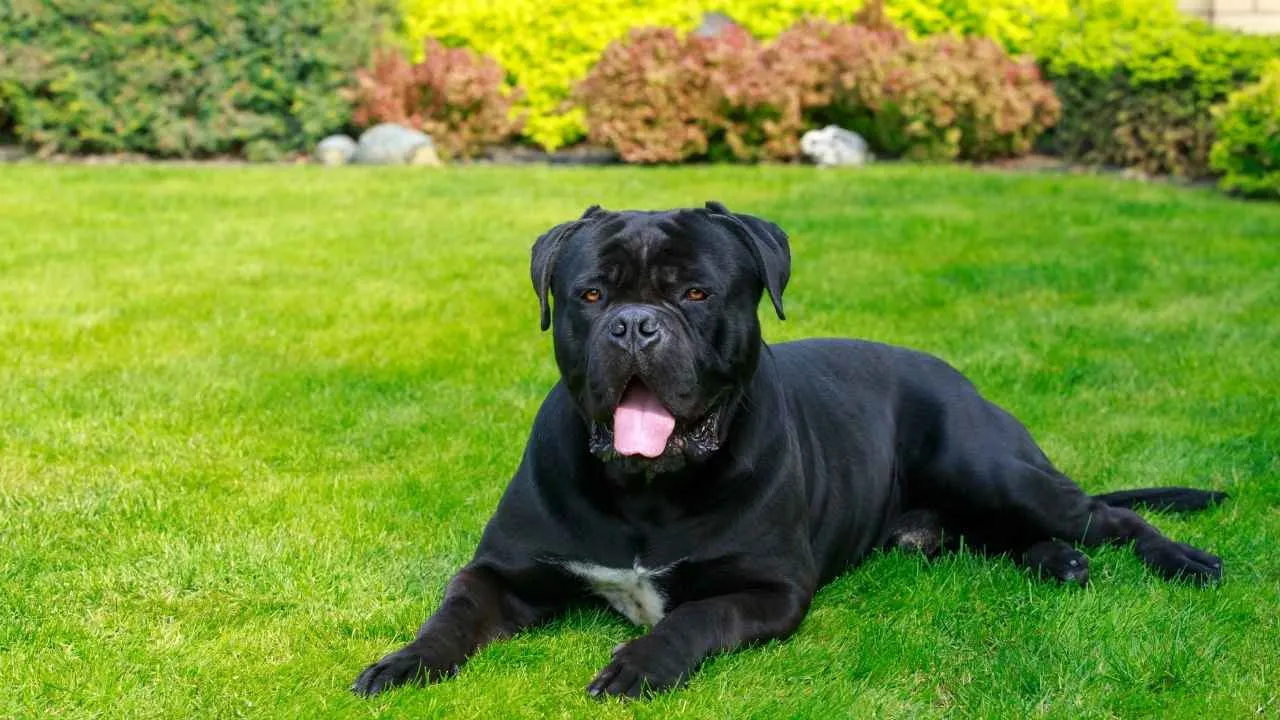
The Cane Corso is a loyal, intelligent, and confident dog. They form strong bonds with their family and can show a friendly and outgoing nature in the right hands. However, their instinct to take charge and protect can be overwhelming for elderly parents.
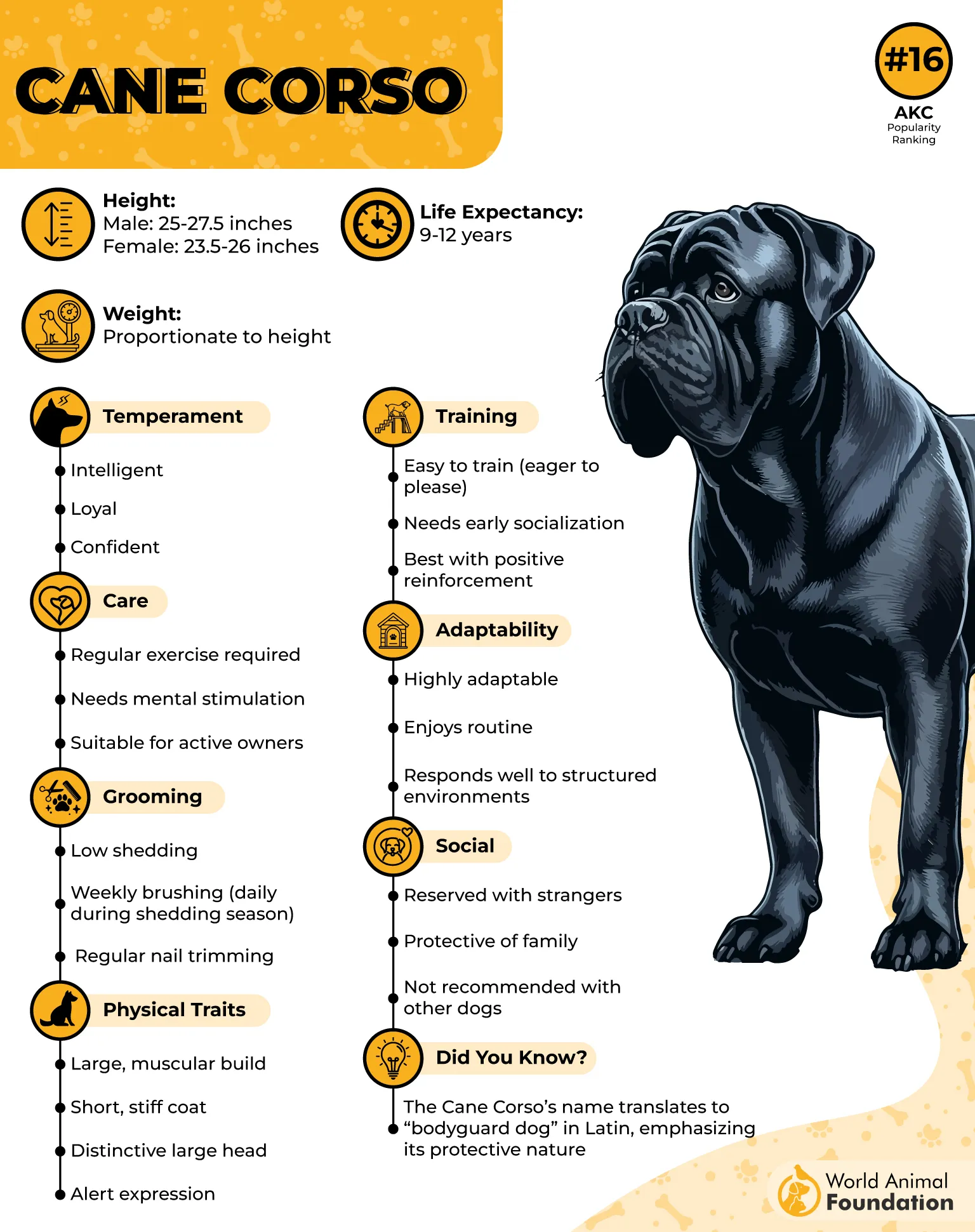
Even simple walks or play sessions demand strength and attentiveness. Their need for regular exercise, mental stimulation, and structured activity can be challenging for seniors to manage.
Without proper guidance, a Cane Corso may develop restless or reactive behaviors, which could create stressful situations in a calm household.
Considerations for Seniors
Cane Corsos thrive with early training, socialization, and positive reinforcement. They benefit from at least an hour walk, a fenced yard, and mentally engaging activities like agility or skills training, as per PetMD.
While their short coat doesn’t require regular grooming, their high exercise requirements and large size often exceed what older adults can safely handle, making them one of the worst dog breeds for senior pet owners.
5. Anatolian Shepherd Dog
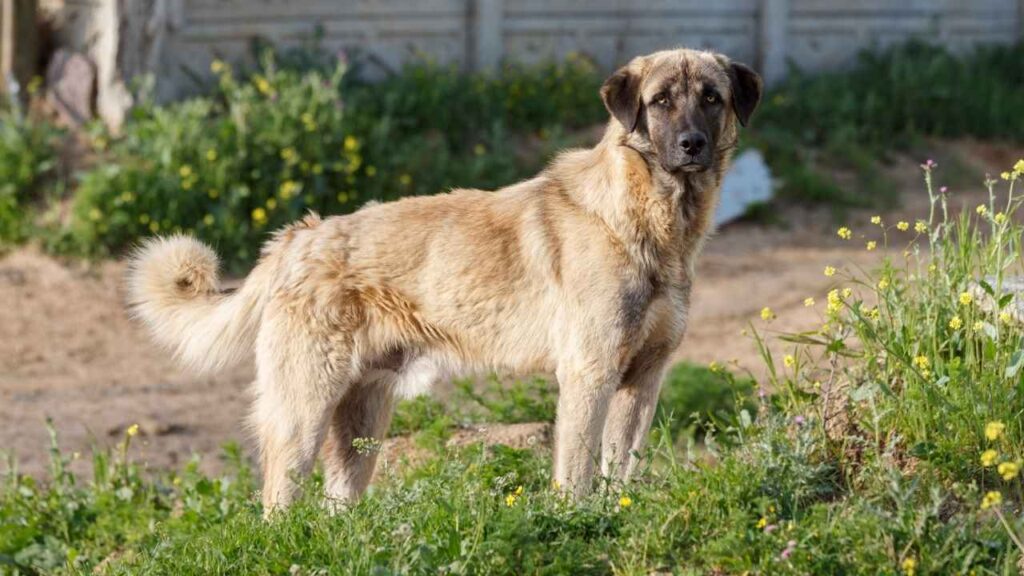
The Anatolian Shepherd Dog is a powerful, perceptive, and loyal companion. They have a strong protective instinct because they were originally bred as a herding breed. While devoted to family, their independent and stubborn temperament can be challenging for elderly parents.
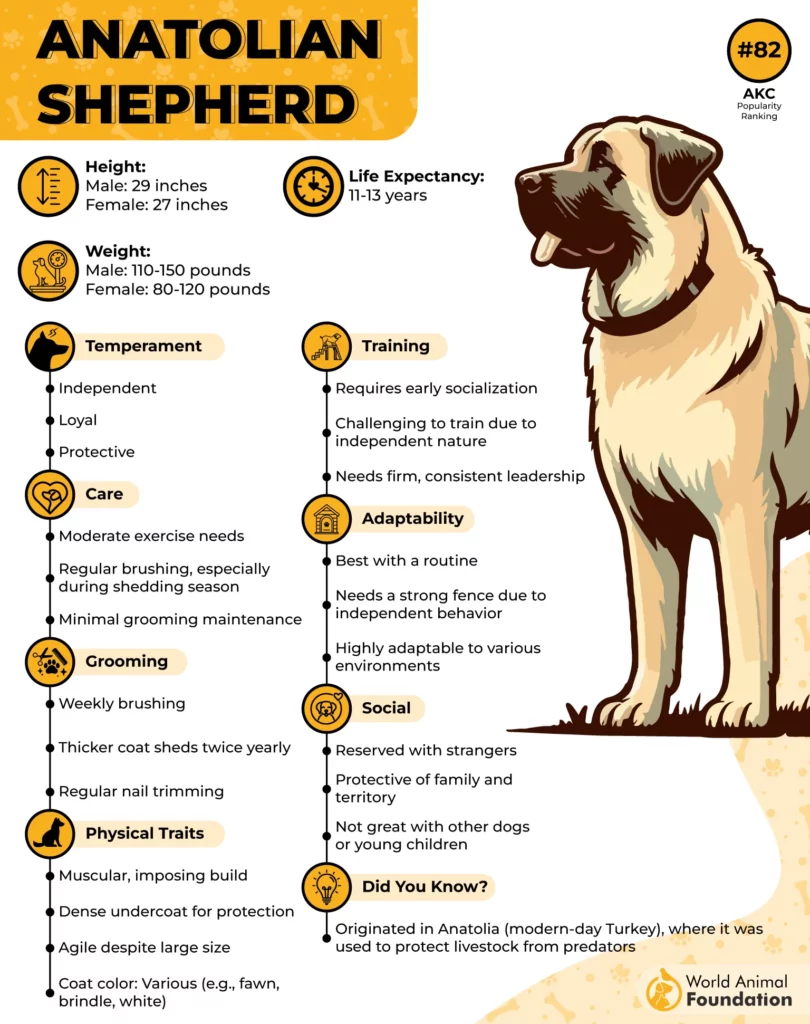
They are not naturally cuddly or affectionate, often preferring to rely on themselves rather than seek comfort. Their strength, alertness, and reserved demeanor may make daily care, walks, and supervision demanding for seniors.
Without proper handling, even well-behaved Anatolian Shepherds can unintentionally create stressful situations in a calm household.
Considerations for Seniors
As per WebMD, early obedience training and socialization are essential to help Anatolian Shepherds adjust to new people and environments. They thrive on structure, play, and mental challenges, but their independent nature and protective instincts make them better suited to experienced owners.
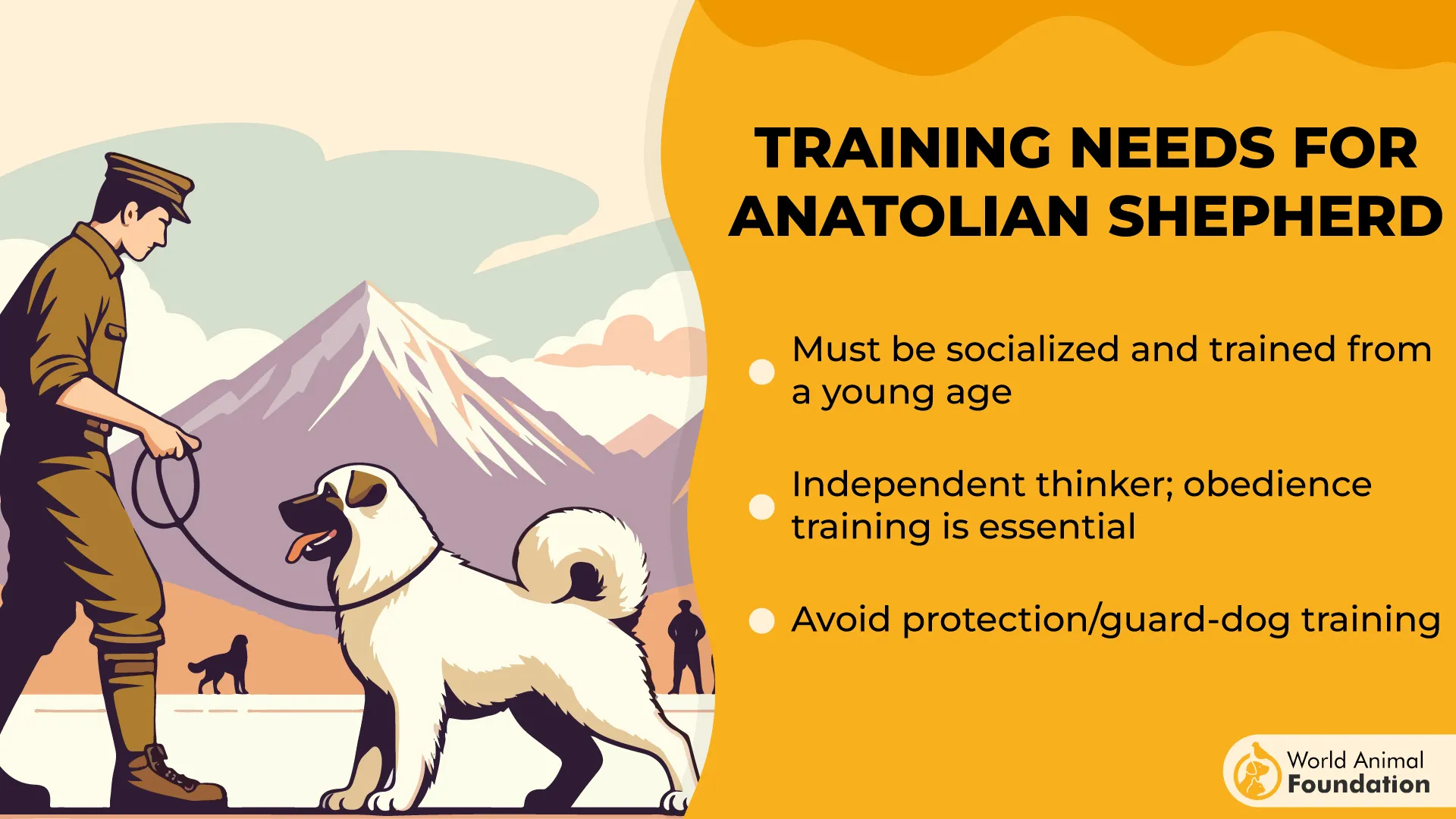
This breed’s vigilance and size often exceed what elderly owners can comfortably manage.
6. Border Collie
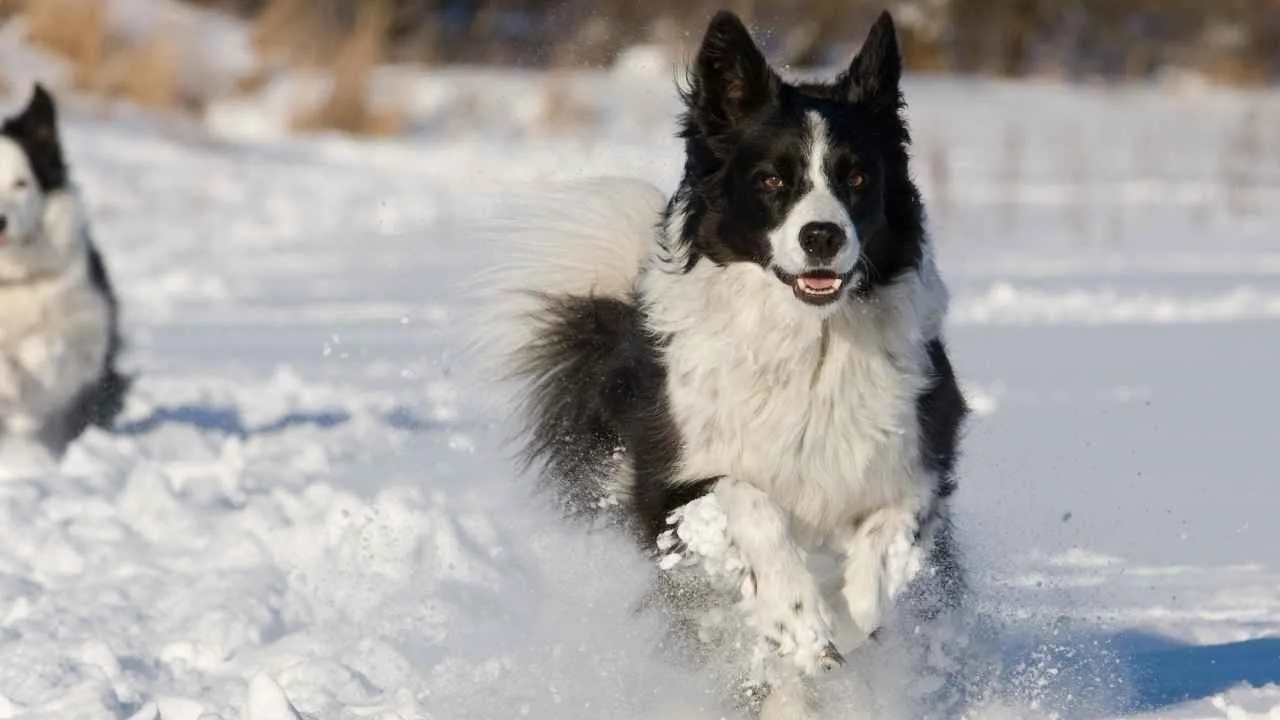
Border Collies are intelligent, intensely focused, and highly energetic dogs. They were bred to herd livestock and thrive when given a purpose. Their problem-solving skills and athleticism make them exceptional workers and loyal companions.
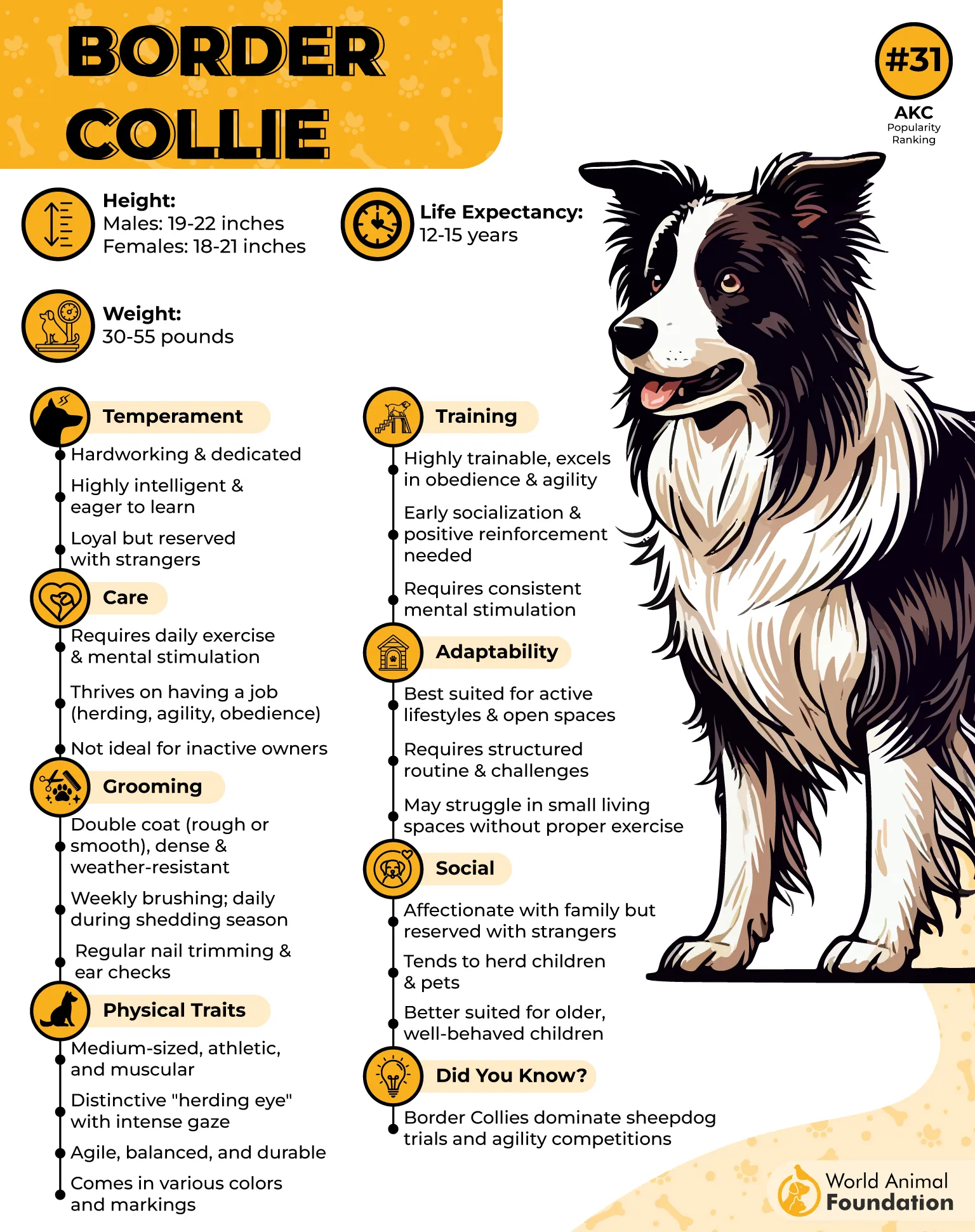
However, for elderly parents, their energy and intensity can be overwhelming. Daily exercise, mental challenges, and consistent engagement are essential to keep them happy. While affectionate, once worn out, their constant need for activity and attention can be physically demanding for seniors.
Considerations for Seniors
Border Collies require structured training, mental stimulation, and plenty of outdoor activity. They are medium-sized but strong, agile, and highly alert, with sharp instincts.
Elderly owners may find the Border Collie’s energy and intelligence too demanding for daily life.
7. Dalmatian
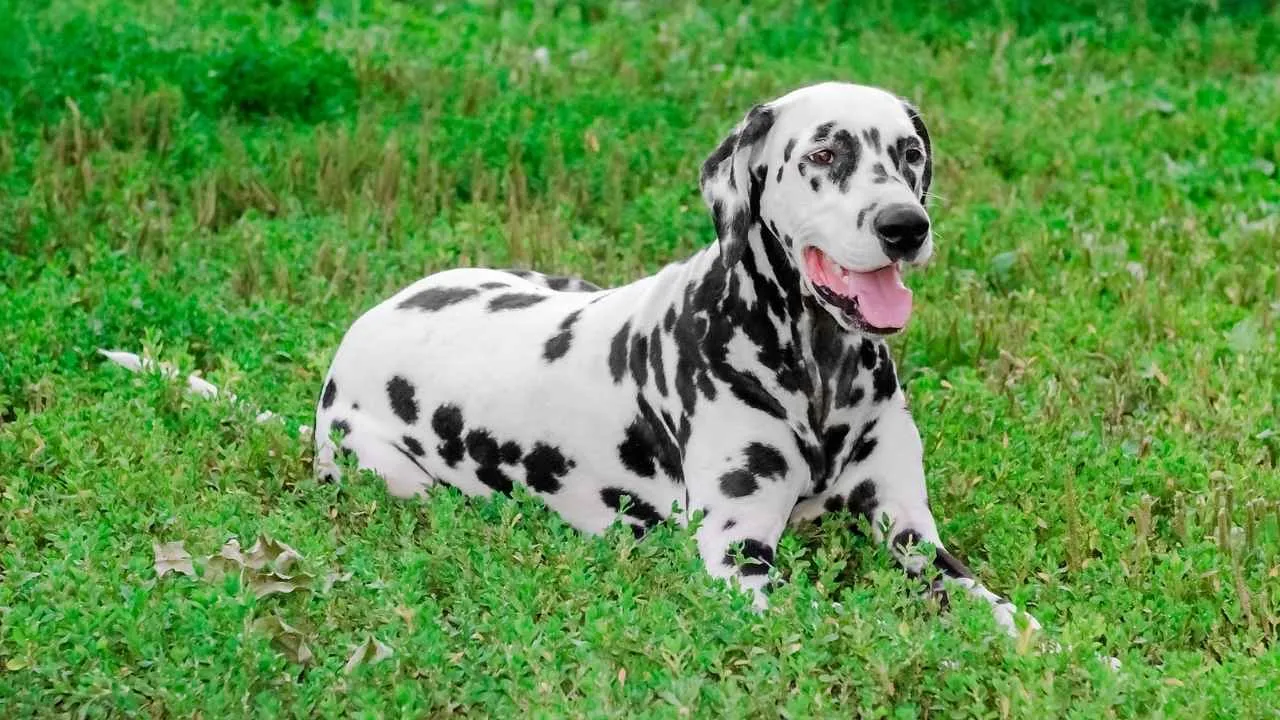
Dalmatians are energetic, playful, and sensitive dogs. They are loyal and bond closely with their family. While good with children, their high energy can be overwhelming, especially for seniors. They need lots of daily exercise to burn off boundless energy.
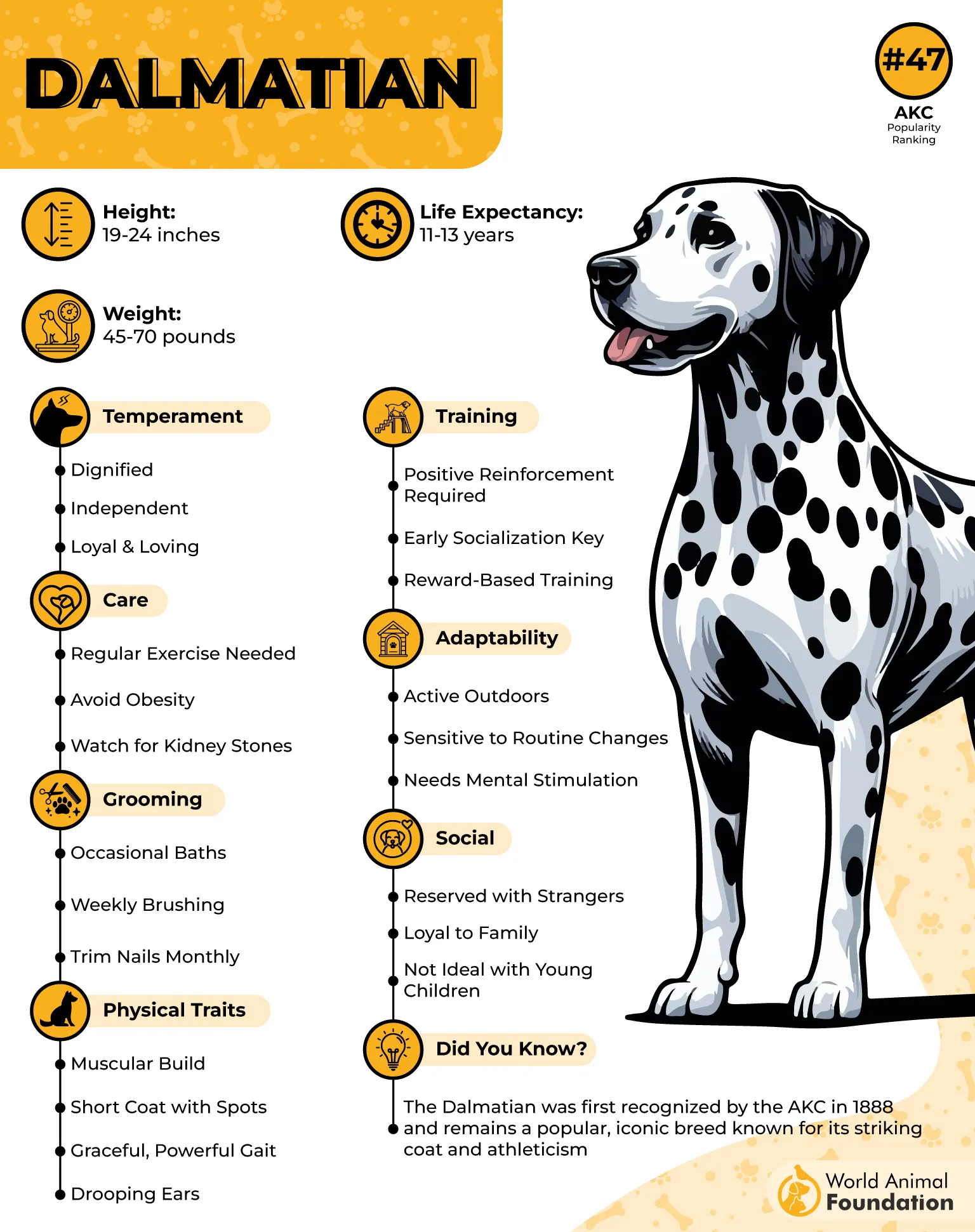
Apartment living can be challenging unless owners are committed to long walks or runs. Dalmatians are intelligent and capable watchdogs, but their temperament varies—some may be reserved with strangers, aggressive toward other dogs, or high-strung if not properly socialized.
Their strong memory means they remember both good and bad experiences, which can affect behavior.
Considerations for Seniors
According to Hill’s Pet, Dalmatians also have health concerns, including a high risk of deafness, and overbreeding has created dogs that may be harder to manage.
This breed’s activity, sensitivity, and care requirements often exceed what seniors can comfortably manage.
8. Great Dane
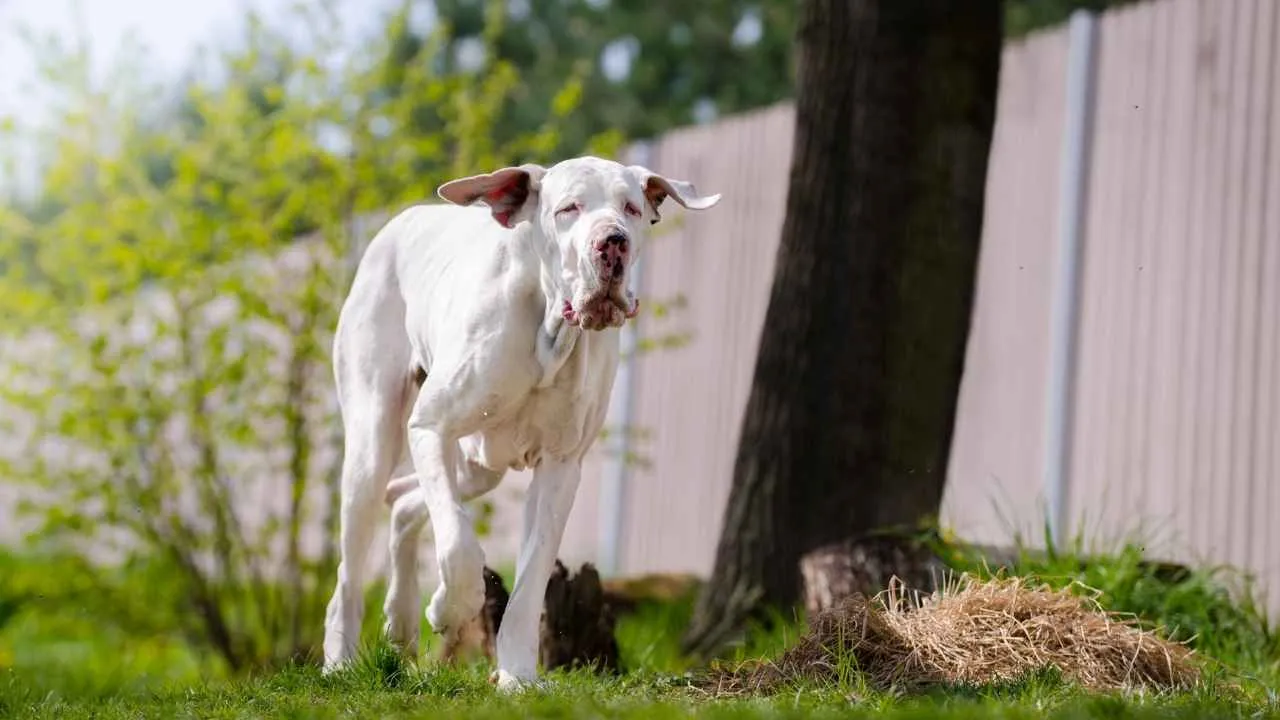
Great Danes are gentle giants, often called the “Apollo of Dogs.” They are affectionate and loyal, forming strong bonds with their family. Despite their calm temperament, their enormous size can pose risks for seniors—accidental bumps or knocks are easy.
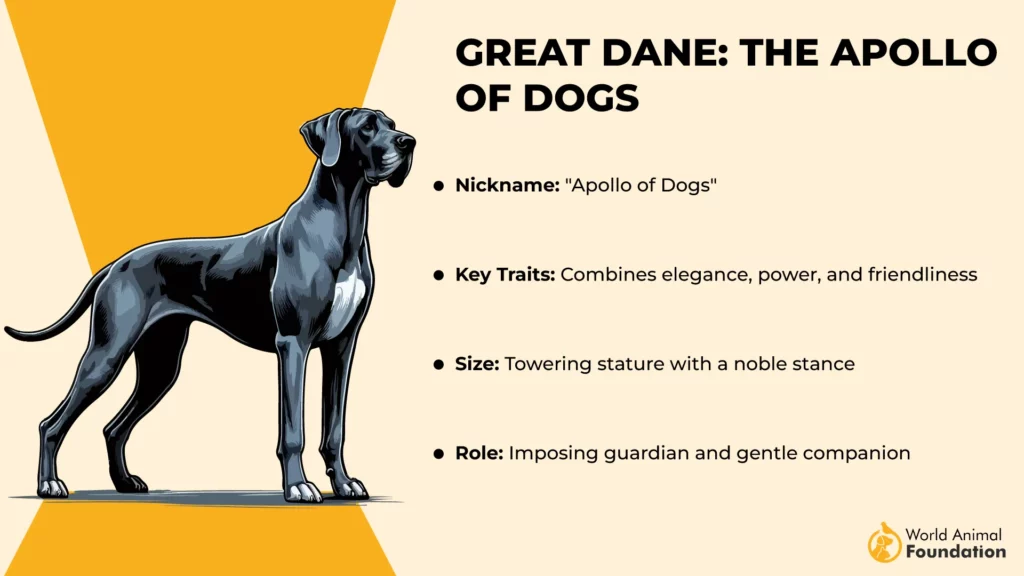
Considerations for Seniors
This dog requires moderate daily exercise to stay healthy, but their size can make walking or handling them challenging. Health concerns like bloat, hip dysplasia, and Wobbler syndrome are common.
Their short coat is low-maintenance, but managing grooming or vet visits may be difficult for older adults.
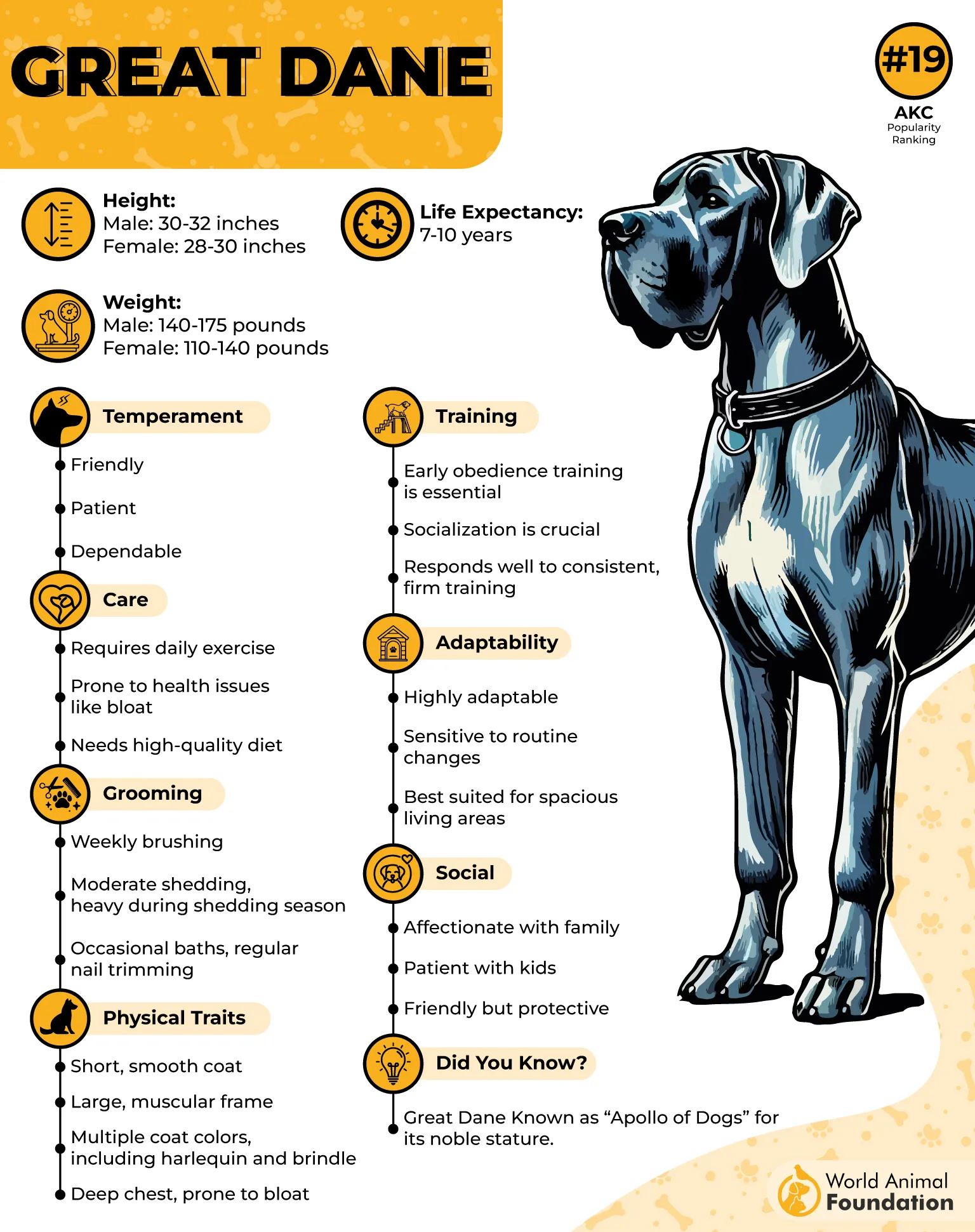
While they are wonderful companions, seniors seeking a calm, low-maintenance dog may find the Great Dane’s size, exercise needs, and health care demands too overwhelming to safely manage in a quiet household.
9. Presa Canario
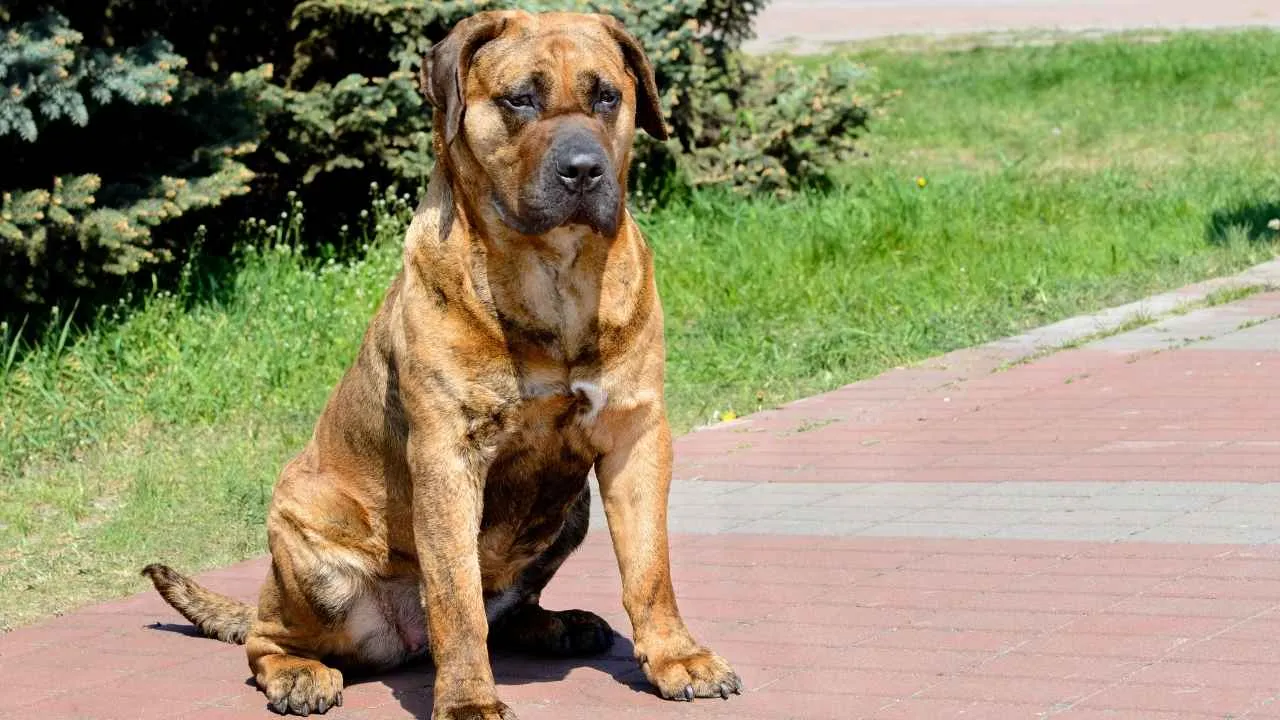
The Presa Canario is a powerful, loyal, and protective breed. They can be gentle and affectionate with family members, yet they remain cautious around strangers. Without proper early socialization and consistent training, they may develop aggressive tendencies.
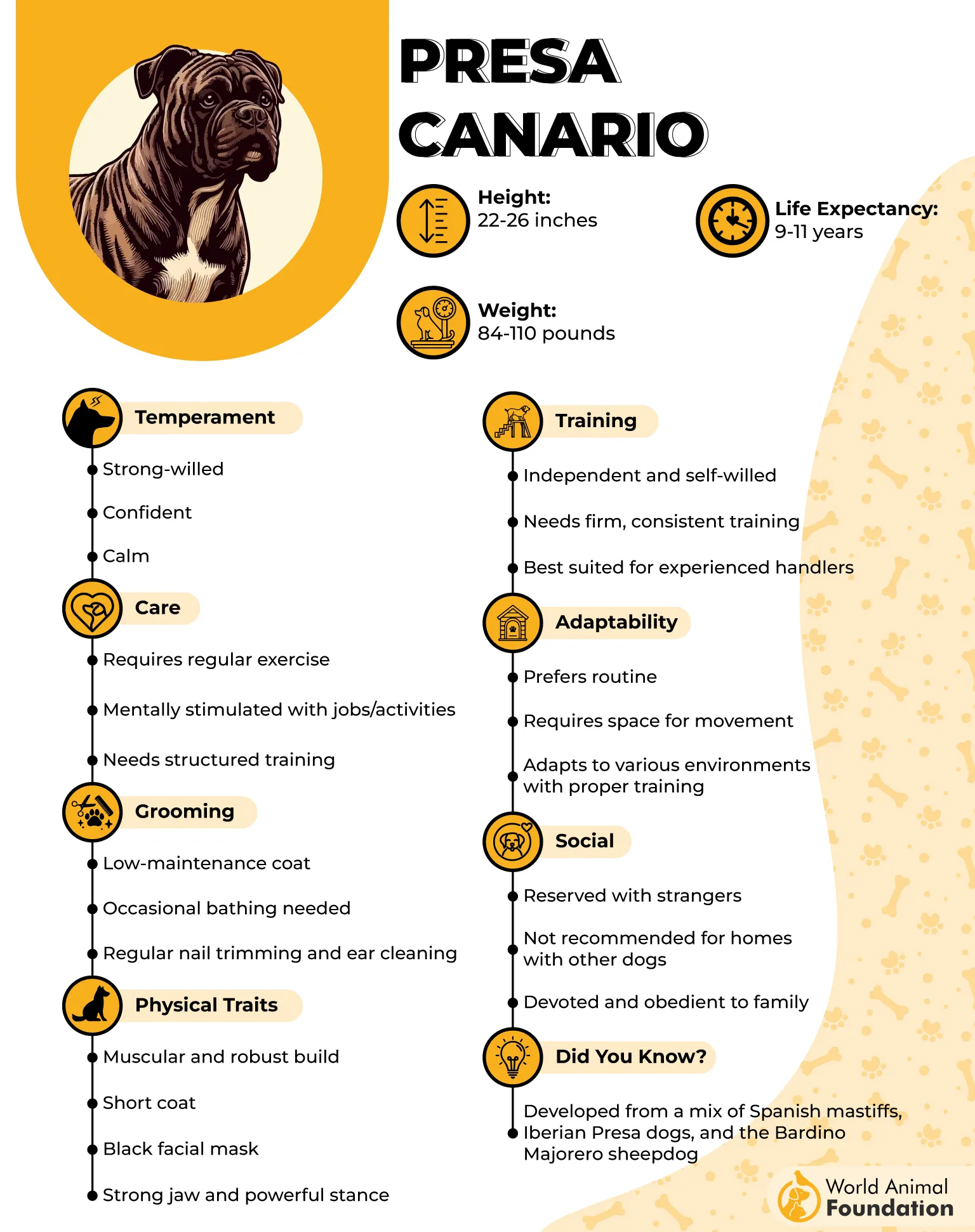
Considerations for Seniors
Their large size and immense strength make daily handling, exercise, and care demanding. Health considerations, including joint and weight management, require regular attention.
For seniors, this breed’s protective instincts, size, and exercise requirements often exceed what can be safely managed.
While they form strong bonds, this breed’s energy and care needs can be difficult for elderly owners to handle.
Conclusion
Choosing the right furry companion is an emotional and meaningful decision, especially for seniors seeking a calm, low-maintenance pet.
While many dogs bring joy, love, and companionship, certain breeds with high energy, strong protective instincts, or demanding care requirements can overwhelm older adults.
From intelligent herders to powerful guardians, these dogs thrive in active households with experienced owners who can meet their physical and mental needs
For seniors, even the most affectionate and loyal breeds may become challenging if their exercise, training, or socialization needs are not met. Prioritizing safety, comfort, and manageable care ensures that both the pet and the elderly parent enjoy a happy, stress-free relationship.
Ultimately, the best choice is a dog whose temperament, energy, and care needs match the lifestyle and abilities of its senior family members.


